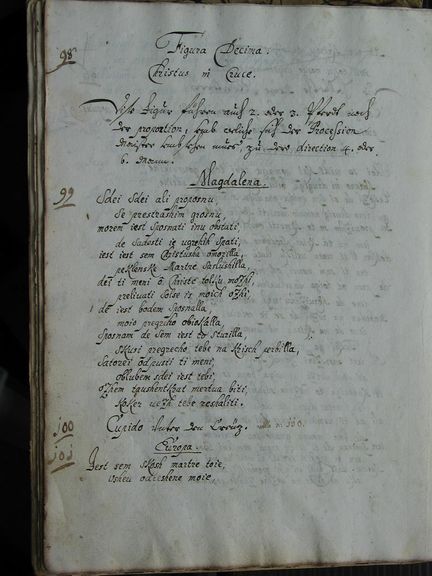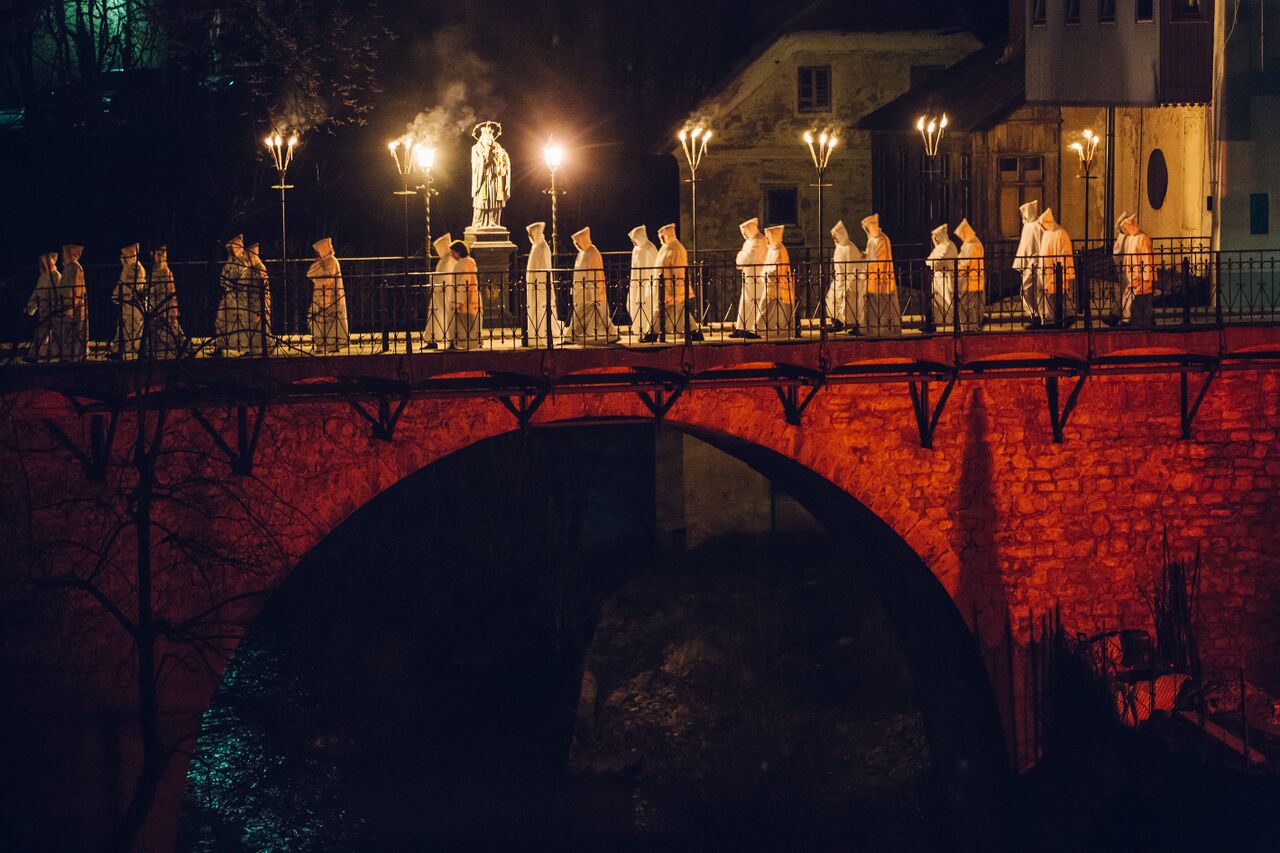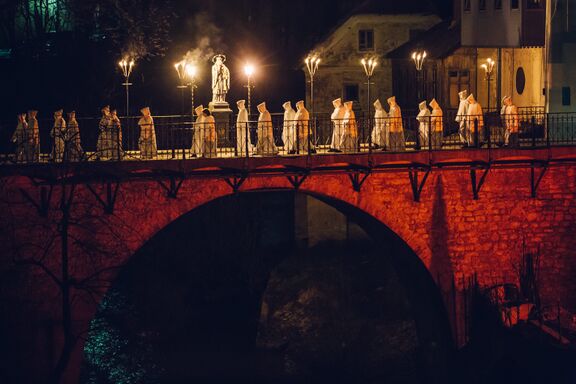Škofja Loka Passion Play
The play
The Škofja Loka Passion Play is a blend of medieval and Baroque mystery and morality plays, all that now remains of the European medieval penitent procession tradition. Since it was originally performed during the Baroque period, it has some Baroque characteristics, most typically Baroque images and allegories.
The play originally comprised 13 images, some of which were spoken and mimed explanations of the action. Today there are 20 scenes, but the order of events remains more or less the same, apart from a few minor changes. The language is original, with a few translations of words which are unfamiliar to today's listeners. Commentaries on the original, written as a framework for the play in German, were added to connect the scenes. Since there are no musical sources in the original, the music was written especially for contemporary performances.
Accompanying events
In the non-Passion years the Loka Museum and the Museum Society of Škofja Loka have organised regular exhibitions and concerts relating to the time when the Passion Play was created. In 2007 the original text (preserved at the Capuchin Monastery Archives and Library, Škofja Loka) and other documents relating to the Škofja Loka Passion Play were exhibited in a church in central Zagreb. In 2010 Municipality of Škofja Loka organises thematic exhibitions, concerts and workshops locally, as well as internationally (photographic exhibition in Kyoto, Japan, and in Pecs, Hungary).
In May 2007 the Museum Society of Škofja Loka also participated for the first time in the assembly of the Europassion Association, an organisation which brings together 70 European cities that are seeking to revive the passion play.
See also
- Municipality of Škofja Loka
- Capuchin Monastery Archives and Library, Škofja Loka
- Loka Museum, Škofja Loka
External links
- Škofja Loka Passion Play website
- Škofja Loka Passion Play faksimile at DLib.si
- The inscription on the UNESCO Intangible Cultural Heritage List





